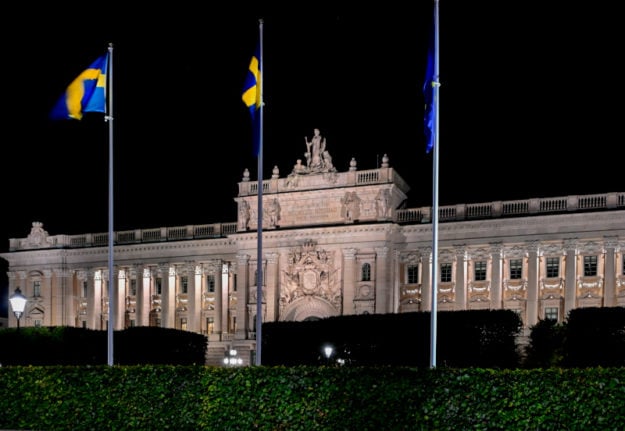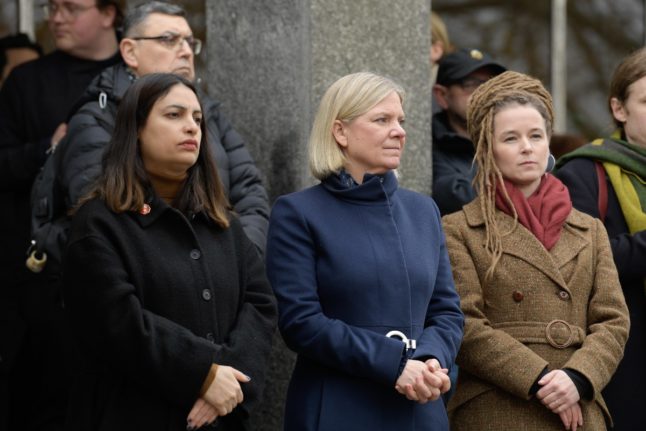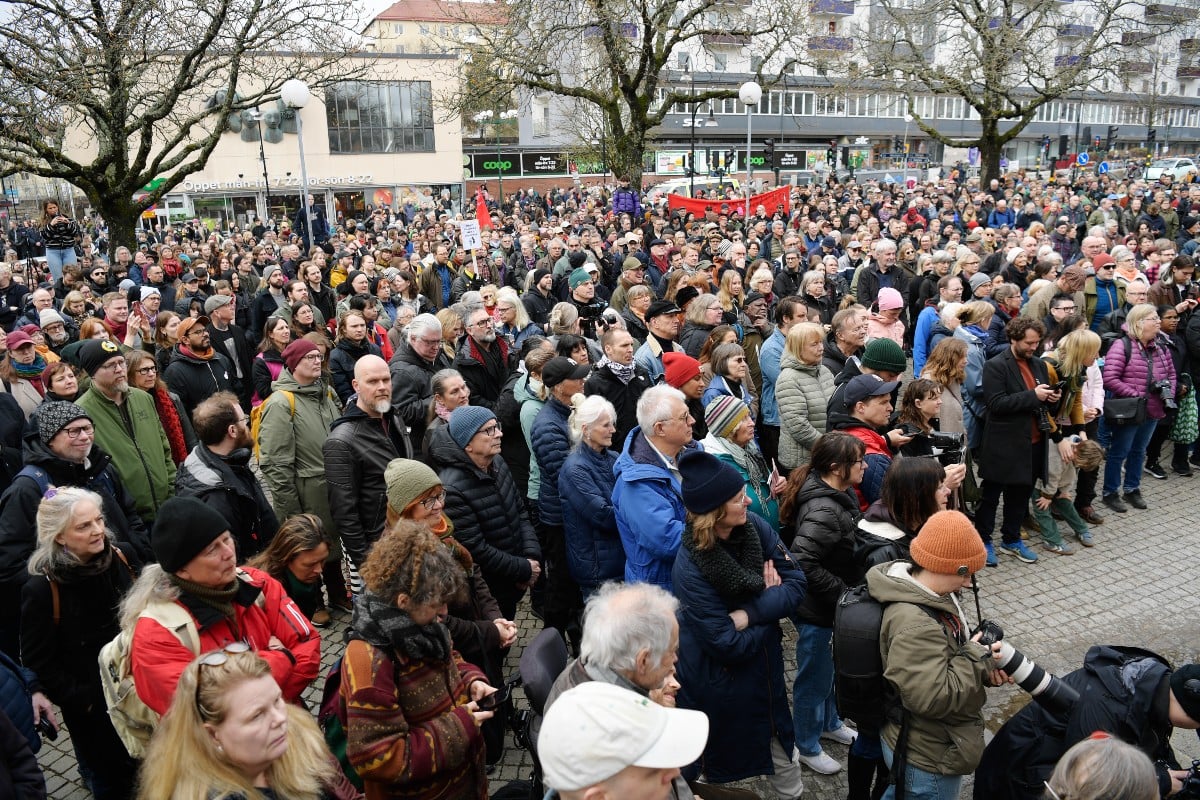Hej,
One of the biggest talking points in Swedish politics in the past week has been a topic that most politicians have been reluctant to talk about at all when asked by the media, a new law on foreign espionage that controversially alters passages in the constitution.
The law puts new limits on Sweden’s freedom of press and expression, and means that it could be a punishable crime in some situations, even for whistle blowers, to disclose secret information from Sweden’s international cooperation if that information could harm Sweden’s relationships to another country or international organisation.
The fact that it would be enough for said information to damage relations with another country (not just directly harm the security of the realm, which was previously the case) has stirred alarm among journalists, who are wondering how it will affect their ability to report on, for example, Sweden’s attempts to improve relations with Turkey to get into Nato.
Prime Minister Ulf Kristersson told Swedish news agency TT that the new law would not restrict the work of journalists, because it states that there has to be intent to damage Swedish interests abroad for it to be considered a crime. But free speech expert Nils Funcke pointed out that the same protection does not apply to whistle blowers.
The Green Party and the Left Party were the only parties that voted to reject the proposal last week, all the other parties voted yes. But the Green Party was part of the centre-left government that first put the proposal to an initial vote earlier this year.
I remember writing an article a few years ago in which I found that although Sweden is built on very democratic structures, those structures are worryingly vulnerable.
The Swedish constitution can be changed by a single majority in parliament with an election held in between (it could even be a snap election, so in theory an anti-democratic government with majority support could put forward a bill to dismantle the entire constitution, throw a snap election, then put forward the same bill again).
For that article, lawyer Stellan Gärde told me that democracy isn’t something that happens automatically and lasts forever, that every generation has to “win” it. He argued that Sweden needs to get better at making democracy and the constitution part of public discourse so that it is actively taught to every new generation.
There’s been a lot of talk among journalists in the past week that Swedish newspapers should have done more ahead of the September election to inform the public about possible constitutional changes, including the new one on foreign espionage.
“In an election campaign where scrutinising power is a hygiene factor, how could we miss this? How could something so drastic happen without debate?” asks Amanda Sokolnicki, a writer for the liberal newspaper Dagens Nyheter, in an opinion piece.
“The answer is unfortunately: because the parties did not want to have any discussion. And because journalists did a bad job. In a time where never-before-seen political forces have emerged, this must be regarded as a wake-up call. Never again can the Swedish public sphere settle for talking about what the ones who hold the power want to talk about. Never again can we be so slow to act when citizens’ rights are at stake.”
Just as I’m writing this email (on Sunday afternoon), Swedish newspapers report that Hédi Fried – psychologist, Holocaust survivor and one of Sweden’s most important voices for democracy and against racism and anti-Semitism – has passed away at the age of 98.
Fried survived the Auschwitz and Bergen-Belsen concentration camps together with her sister (their parents didn’t) and in 1945 they came to Sweden on a Red Cross boat.
“Few people have done as much as Hédi Fried to give mine and my children’s generations knowledge of the Holocaust crimes against humanity,” wrote Prime Minister Kristersson, paying tribute to her work in a post on Facebook.
Many people posted hearts in a thread under the post, but many also reminded Kristersson that his new government had broken a much-publicised promise to Fried never to work together with the Sweden Democrats. Kristersson himself has previously said that the promise, which was made ahead of the 2018 election, was only made in relation to the then centre-right Alliance (which fell apart shortly afterwards).
King Carl XVI Gustaf of Sweden said that he and his family would remember Fried’s work, “kindness and wisdom” with “gratitude and respect”. “She educated generations of Swedes about the evil of the Holocaust and the inviolability of human dignity.”
I’ve met Fried myself and she had a dignity, clearheadedness and eloquence that few people have. Sweden has a great responsibility to make sure that her spirit lives on.
I’ll finish with a quote from Fried’s own book Questions I Am Asked About The Holocaust, when she discussed the question of whether she would ever be able to forgive the perpetrators.
“It is a question I’ve often thought about, until I realised that you don’t have to think in those terms,” she wrote.
“What has been cannot be undone, time cannot be turned back, those who are gone will never return. Today, it is the future that matters. What we can do today, is work to ensure that it never happens again.”
Sweden Elects is a weekly column by Editor Emma Löfgren looking at the big talking points and issues after the Swedish election. Members of The Local Sweden can sign up to receive the column as a newsletter in their email inbox each week. Just click on this “newsletters” option or visit the menu bar.




 Please whitelist us to continue reading.
Please whitelist us to continue reading.
Member comments